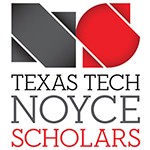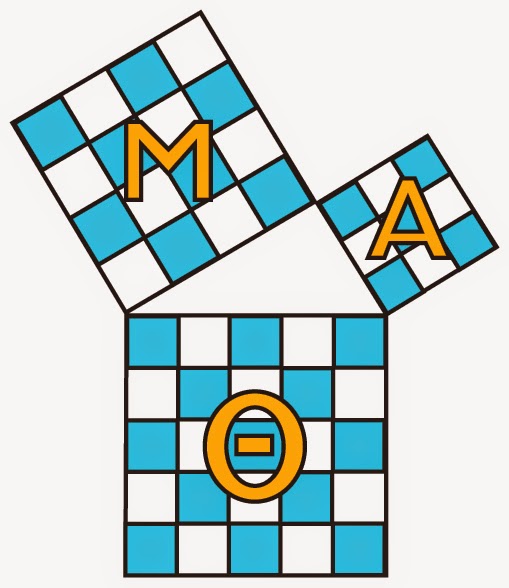Mathematics
Mathematics is the study of numbers, their properties and relationships in the modeling of real-world phenomenon. Many fields make use of the problem-solving and strong analytical skills that mathematics majors possess.
Students who enroll in mathematics courses at Midland College are not only satisfying general degree requirements, but also preparing themselves to be logical thinkers in their fields of study.
One of the most common fields for students interested in an undergraduate degree in mathematics is public school education, but mathematics majors can do so much more! Majors in mathematics can find careers in business, economics, banking, and research laboratories for government and private companies working on modeling and analysis.
The Mathematics Department strives to provide students with the knowledge to pursue not only a degree in mathematics, but also in the sciences, engineering, health fields, and to satisfy general degree requirements.
Program Details
Select links below for details
THE NOYCE SCHOLARS PROGRAM
 |
This is a collaboration between Midland College and Texas Tech University. The Noyce
Scholars program is primarily designed for undergraduate STEM (Science, Technology,
Engineering, and Mathematics) students who are interested in making an impact through
teaching. The program is divided into two tracks: Pre-Noyce Summer Fellows and Noyce
Scholars.
Noyce Scholars Program
To be considered for a scholarship, please follow the link below:
Courses offered in the Mathematics department are transferrable to all public colleges and universities in Texas. Students who plan to transfer to a private institution or university outside of Texas are advised to contact the specific institution regarding course transferability.
The Texas Transfer Inventory Guide outlines mathematics course requirements by program for all public colleges and universities in Texas. This program inventory is maintained by the Charles A. Dana Center at the University of Texas at Austin.
Midland College has articulation agreements with a variety of schools and programs to assist our students with transferring to a university. Our curriculum maps, located in the catalog, provide a guided path for general transfer to our top five receiving institutions; however, your Pathways Advisor can assist you with a personalized plan for your specific transfer based on university and program. It is strongly recommended and encouraged that you contact your Pathways Advisor for assistance with course selection if you plan to transfer.
MIDLAND COLLEGE/SUL ROSS STATE UNIVERSITY PROGRAM
Want to earn a Bachelor's Degree while staying right here at MC?
The Sul Ross @ MC Distance Program allows students to complete 11 different Baccalaureate degrees from Sul Ross State University while staying on the Midland College campus. Transfer up to 90 hours of lower level coursework directly into your selected degree plan. Advanced courses are presented via interactive televised lectures or web-based classes given by Sul Ross faculty, with labs being taught by Midland College faculty.
Campus Activities
Student Mathematics League
The American Mathematical Association of Two Year Colleges (AMATYC) Student Mathematics League is a timed problem-based national competition held in the fall and spring semesters to encourage critical thinking in pre-calculus mathematics. Teams of five or more students (or individual students) meet regularly to practice problem-solving strategies in preparation for the competition.
Contact Joey Severino for more information at jseverino@midland.edu.
Student Research League
The American Mathematical Association of Two Year Colleges (AMATYC) Student Research League is a national competition to encourage research problem solving in mathematics. Teams of one or more Midland College students meet regularly to practice problem solving and research skills in preparation for the STEM Challenge Problem competition held during the spring semester.
Contact Jamie Kneisley for more information at jkneisley@midland.edu.
AMATYC Student Research League
National Math Honor Society
 |
Mu Alpha Theta is a National Math Honor Society for two-year colleges. The goal of Mu Alpha Theta is to recognize strong scholarship in math and to promote interest in and enjoyment of mathematics. Membership benefits include, but are not limited to, scholarship opportunities, research possibilities, and recognition at Midland College graduation.
Mu Alpha Theta National Website
Undergraduate Research
MC Mathematics students who participate in the undergraduate research program learn to answer big questions using a process called mathematical modeling. This is the process by which a student uses the math that they know in a novel way to find a justifiable solution to big, messy questions. Past research questions include finding the safest (in terms of natural disasters) place to live in the United States, determining the best way to power a single residence, and developing an investment strategy for the stock market.
Mathematical research and education are at the heart of some careers, while other careers utilize mathematics and its applications to build and enhance important work in the sciences, business, finance, manufacturing, communications, and engineering. Here are two online sources for career information.
Visit the Course Catalog for the most complete and up-to-date information.
ContactsDepartment ChairKrista Cohlmia, Ph.D. Faculty |
Division OfficeMath & ScienceAbell-Hanger Science Faculty Building |
Related Programs |
Related Resources |
Apply to MC Now
Thank you for choosing Midland College! If you are here to collect a few credits, take courses to transfer, or here to start a new career, we welcome you.